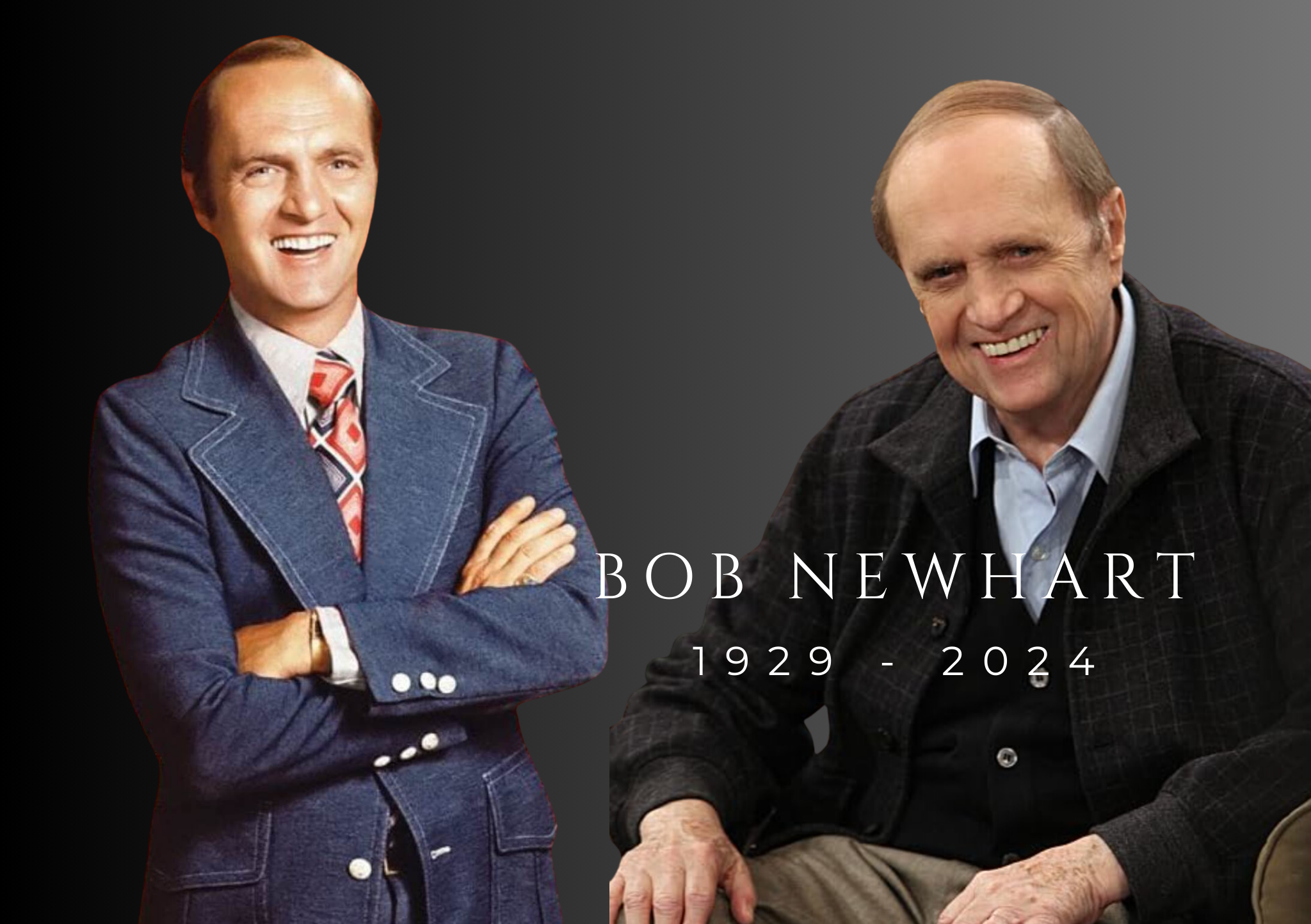Bob Newhart, the beloved stand-up performer whose droll, deadpan humor showcased on two critically acclaimed CBS sitcoms vaulted him into the ranks of history’s greatest comedians, died Thursday morning. He was 94.
The Chicago legend, who won Grammy Awards for album of the year and best new artist for his 1960 breakthrough record, “The Button-Down Mind of Bob Newhart,” died at his Los Angeles home after a series of short illnesses, his longtime publicist, Jerry Digney, announced. The former accountant famously went without an Emmy Award until 2013, when he finally was given one for guest-starring as Arthur Jeffries (alias Professor Proton, former host of a children’s science show) on CBS’ “The Big Bang Theory.”
In 1972, MTM Enterprises cast the modest comic as clinical psychologist Bob Hartley, who practiced in the real-life Newhart’s favorite burg, Chicago. “The Bob Newhart Show would become one of the most popular sitcoms of all time, featuring a wonderful cast of supporting players: Suzanne Pleshette, Peter Bonerz, Marcia Wallace, Bill Daily and Jack Riley among them. Newhart ended the series in 1978 after 142 episodes — and, incredibly, no Emmy nominations for him and no wins for the show — feeling it had exhausted its bag of tricks. But he was back on CBS in 1982 to front another MTM comedy.
In “Newhart,” he portrayed Dick Loudon, a New York author turned proprietor of the Stratford Inn in Vermont. The show was a mainstay for eight seasons, and this one also featured a great cast (Mary Frann, Tom Poston — who later would marry Pleshette — Julia Duffy, Peter Scolari and, as handymen “Larry, Darryl and their other brother Darryl,” William Sanderson, Tony Papenfuss and John Voldstad).
In one of the most admired series endings in history, Newhart wrapped its eight-season run with a cheeky final scene in which Loudon wakes up in the middle of the night as Bob Hartley in bed with Pleshette in their Chicago apartment, suggesting that his whole second series had been a dream.
Newhart’s pauses and stammering were among his trademarks, and his wry observations were a result of his observant nature. “I tend to find humor in the macabre. I would say 85 percent of me is what you see on the show. And the other 15 percent is a very sick man with a very deranged mind,” he said during a 1990 interview with Los Angeles magazine. He was inducted into the Academy of Television Arts & Sciences Hall of Fame in 1992.
George Robert Newhart was born on Sept. 5, 1929, in Oak Park, Illinois. He grew up a Cubs fan and participated in the team’s victory parade down La Salle Street after Chicago took the National League pennant in 1945. (He was, quite naturally, thrilled when the Cubs ended their 108-year World Series drought by winning in 2016.)
In 1959, another friend who was a disc jockey in Chicago introduced Newhart to a Warner Bros. Records executive. The accountant, now a copywriter, had just three routines at the time but came up with more material and landed a contract with the record company. “Keep in mind, when I started in the late fifties, I didn’t say to myself, ‘Oh, here’s a great void to fill — I’ll be a balding ex-accountant who specializes in low-key humor,’ ” he said. “That’s simply what I was and that’s the direction my mind always went in, so it was natural for me to be that way.”
The Button-Down Mind of Bob Newhart, recorded live at a nightclub in Houston, became the first comedy album to reach the top of the album charts, selling 1.5 million copies as one of the biggest-selling “talk” albums. The bits included such classics as “Abe Lincoln vs. Madison Avenue” and “Driving Instructor.” Following two more successful albums, Newhart was offered a weekly TV variety series for the 1961-62 season. The first The Bob Newhart Show won an Emmy for the year’s outstanding program achievement in the field of humor as well as a Peabody Award.
Chicago honored Newhart with a statue on Michigan Avenue, near the office building seen in the opening credits of The Bob Newhart Show, with his likeness in a chair and an empty psychiatrist’s couch at his side. It was later moved to the Navy Pier. In 2002, he became the fifth recipient of the Kennedy Center’s Mark Twain Prize for American Humor and four years later published his memoirs, “I Shouldn’t Even Be Doing This.”
Survivors include his children, Robert Jr., Timothy, Courtney and Jennifer, and 10 grandchildren.














